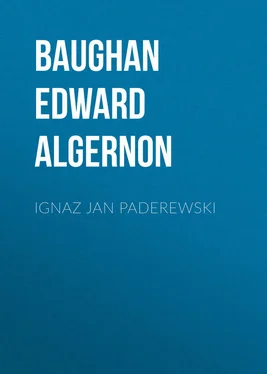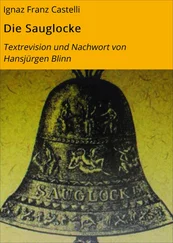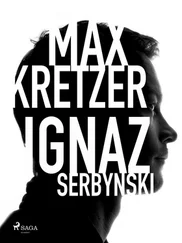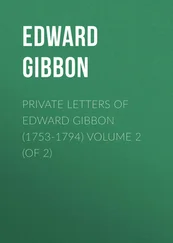Edward Baughan - Ignaz Jan Paderewski
Здесь есть возможность читать онлайн «Edward Baughan - Ignaz Jan Paderewski» — ознакомительный отрывок электронной книги совершенно бесплатно, а после прочтения отрывка купить полную версию. В некоторых случаях можно слушать аудио, скачать через торрент в формате fb2 и присутствует краткое содержание. Жанр: foreign_antique, foreign_prose, на английском языке. Описание произведения, (предисловие) а так же отзывы посетителей доступны на портале библиотеки ЛибКат.
- Название:Ignaz Jan Paderewski
- Автор:
- Жанр:
- Год:неизвестен
- ISBN:нет данных
- Рейтинг книги:3 / 5. Голосов: 1
-
Избранное:Добавить в избранное
- Отзывы:
-
Ваша оценка:
- 60
- 1
- 2
- 3
- 4
- 5
Ignaz Jan Paderewski: краткое содержание, описание и аннотация
Предлагаем к чтению аннотацию, описание, краткое содержание или предисловие (зависит от того, что написал сам автор книги «Ignaz Jan Paderewski»). Если вы не нашли необходимую информацию о книге — напишите в комментариях, мы постараемся отыскать её.
Ignaz Jan Paderewski — читать онлайн ознакомительный отрывок
Ниже представлен текст книги, разбитый по страницам. Система сохранения места последней прочитанной страницы, позволяет с удобством читать онлайн бесплатно книгу «Ignaz Jan Paderewski», без необходимости каждый раз заново искать на чём Вы остановились. Поставьте закладку, и сможете в любой момент перейти на страницу, на которой закончили чтение.
Интервал:
Закладка:
Edward Algernon Baughan
Ignaz Jan Paderewski
I
EARLY LIFE
The professional critic is rather at a disadvantage in dealing with an idol of the public. His occupation compels him to find a reason for his appreciations; he may not be enthusiastic without measure, for his nature makes him see both brilliancy and flaws in the rarest gems of art; indeed, the flaws act as a foil to the brilliancies. And so it comes about that the professional critic is often at loggerheads with the verdict of the public, or appears to be so. The public has hailed Paderewski as the greatest of living pianists. The critic may feel that in many respects he is, but cannot, if he would, endorse that enthusiastic verdict without clauses of limitation, and if he be not a master of his craft his verdict will seem all limitations and but very little enthusiasm. One recognises the greatness of Paderewski, but at the same time the mind thinks of the subtle Chopin-playing of Pachmann, the noble Beethovenish moods of d'Albert and Lamond, the clearness and demoniac brilliancy of Busoni's technique in Liszt, the grace of Pugno's Mozart-playing, the ruthless force of Rosenthal and the magical deftness of Godowsky. These pianists have their specialities in which not even a Paderewski can surpass them and in some cases cannot equal them. On the other hand, he possesses that curious magnetism which always enchains the attention of the public. It cannot be explained; yet the critic must admit its existence in the case of Paderewski or stultify himself. If sensitive to the poetic appeal of music he must feel, too, that at its best the pianist's playing has a glamour and an individuality which are to seek in the performances of many pianists who possess greater technical ability, and that all his interpretations are informed by a sincere musical nature.
It may seem absurd and unnecessary to insist on this in the case of a great virtuoso, for assuredly in piano playing, as in acting or singing, the nature of the artist counts for everything. But the word artist has become so vulgarised that it has lost its meaning, and we are inclined to separate technical ability from innate musical genius and to judge performers rather by what they can do than by what they think and feel. This is naturally the attitude of the specialist in forming an opinion on the respective merits of different players. It is not possible to dogmatise about poetic feeling or insight: we have to take these qualities for granted. On the technical side there is a standard by which we may judge apart from any question of taste. Yet in the end the specialist who may go into raptures over the beauty of tone which Pachmann has made his god, or may be hypnotised by the wonderful fingers of a Godowsky, has to fall back on the inexplicable in attempting an appreciation of such gifted artists as Joachim, Ysaye, Sarasate, or Paderewski. Technical standards do not avail. And the curious point is that the great artist, the musical executant who can think his own musical thoughts, compels our admiration even though we may criticise his playing in technical detail.
Paderewski is one of the few players who has that effect on all kinds of music-lovers. There are many reasons why the pianist should have made the effect he has. There are many reasons why he should be exceptional. For one, he was a public pianist by after-thought; at a comparatively early age, when other artists are theorising about life he was living it in earnest, and, above all, he was a Pole, a member of that extraordinary nation which has given birth to Chopin, Tausig and many minor stars in the musical firmament. Paderewski is a Pole to his finger-tips. He has the fire, the dreaminess, the power of fantasy of that race. It comes out in his playing and especially in his compositions.
Podolia, the province of South-west Russia in which he was born on November 6, 1860, is a fertile district, of which the Polish population is quite considerable. The pianist's recollection of his childhood on his father's farm in this garden of Russia must be full of pleasantness. The father seems to have been a man of pronounced character. A gentleman farmer of position he was also an ardent patriot. Three years after the birth of his son he was "suspect" and was banished to Siberia. His exile did not last long, but the iron had entered into his soul, and although he lived until 1894 he was broken in spirit and his chief pleasure in life was centred in the growing reputation of his son. The pianist did not inherit his musical talent from his father but from his mother, who died when he was still a child.
It is difficult not to be sceptical of the anecdotes related of the childhood of celebrated musicians. But no doubt some of these stories have a basis of truth, and certainly musical talent shows itself at a very early age. It is said that young Ignace, long before he could play, would climb to the piano-stool and attempt to produce as beautiful a tone as possible. Of the ordinary early tuition he appears to have had none, his mother having died when he was a child. A travelling fiddler gave the boy a few lessons on the piano, but it may be imagined that they were not of a very complete kind. Later on an old teacher of the instrument was engaged to pay a monthly visit to the farm, and he taught the boy and his sister to play simple arrangements of operatic airs. This early life spent away from strong musical influences saved Paderewski from the usual prodigy period in the career of pianist, for it was not until he was twelve years of age that he went to Warsaw where he was able to have regular music-lessons at the Conservatoire. There he studied harmony with Roguski and the piano with Janotha, the father of Natalie Janotha. In those days Paderewski did not show any particular bent towards playing the piano but rather towards composition (he had begun to compose in the old days on the farm) and general musical knowledge. His first public appearances were not so much as pianist as a composer who played his own music. He was then sixteen years old and it would be interesting to know how the immature pianist impressed his Russian audiences. That his technique was of the weakest may be judged from the fact that he afterwards confessed that all the pieces he played were really his own, inasmuch as when he could not manage the difficult passages he merely improvised.
Miss Szumowska, a pupil of Paderewski's, has related a curious anecdote of their first tour. Paderewski "had announced a concert at a certain small town, but, on arriving, found that no piano was to be had for love or money. The general was perfectly willing, on being applied to, to lend his instrument; but when the pianist tried it he found, to his dismay, that it was so badly out of repair that some of the hammers would stick to the strings instead of falling back. However, it was too late to back out. The audience was assembling and in this emergency a bright thought occurred to the pianist. He sent for a switch, and engaged an attendant to whip down the refractory hammers whenever necessary. So bang went the chords and swish went the whip, and the audience liked this improvised duo more, perhaps, than it would have enjoyed the promised piano solo."
The young pianist evidently did not consider that his musical education was complete, for at the end of the tour he returned to Warsaw and studied for two years at the Conservatoire there. At the age of eighteen he was appointed a professor of music and after a year he married. All the world knows that his wife died a year later, leaving him an invalid son in whose existence, until his death a little while ago, the pianist was wrapped up. It was not a very bright beginning of his professional career, for his earnings at the Warsaw Conservatoire had meant comparative privation for his wife and himself. In some natures, perhaps, this early tragedy would have killed ambition but hardly in an artist. Without holding with the comfortable sentimentalists that grief is as necessary to the artist as rain to the flowers, it may be asserted that concentration on work is the natural result of life going awry. This is not, as the sentimentalists imagine, peculiar to genius of the artistic type, but is common to all men who are not invertebrate.
Читать дальшеИнтервал:
Закладка:
Похожие книги на «Ignaz Jan Paderewski»
Представляем Вашему вниманию похожие книги на «Ignaz Jan Paderewski» списком для выбора. Мы отобрали схожую по названию и смыслу литературу в надежде предоставить читателям больше вариантов отыскать новые, интересные, ещё непрочитанные произведения.
Обсуждение, отзывы о книге «Ignaz Jan Paderewski» и просто собственные мнения читателей. Оставьте ваши комментарии, напишите, что Вы думаете о произведении, его смысле или главных героях. Укажите что конкретно понравилось, а что нет, и почему Вы так считаете.












